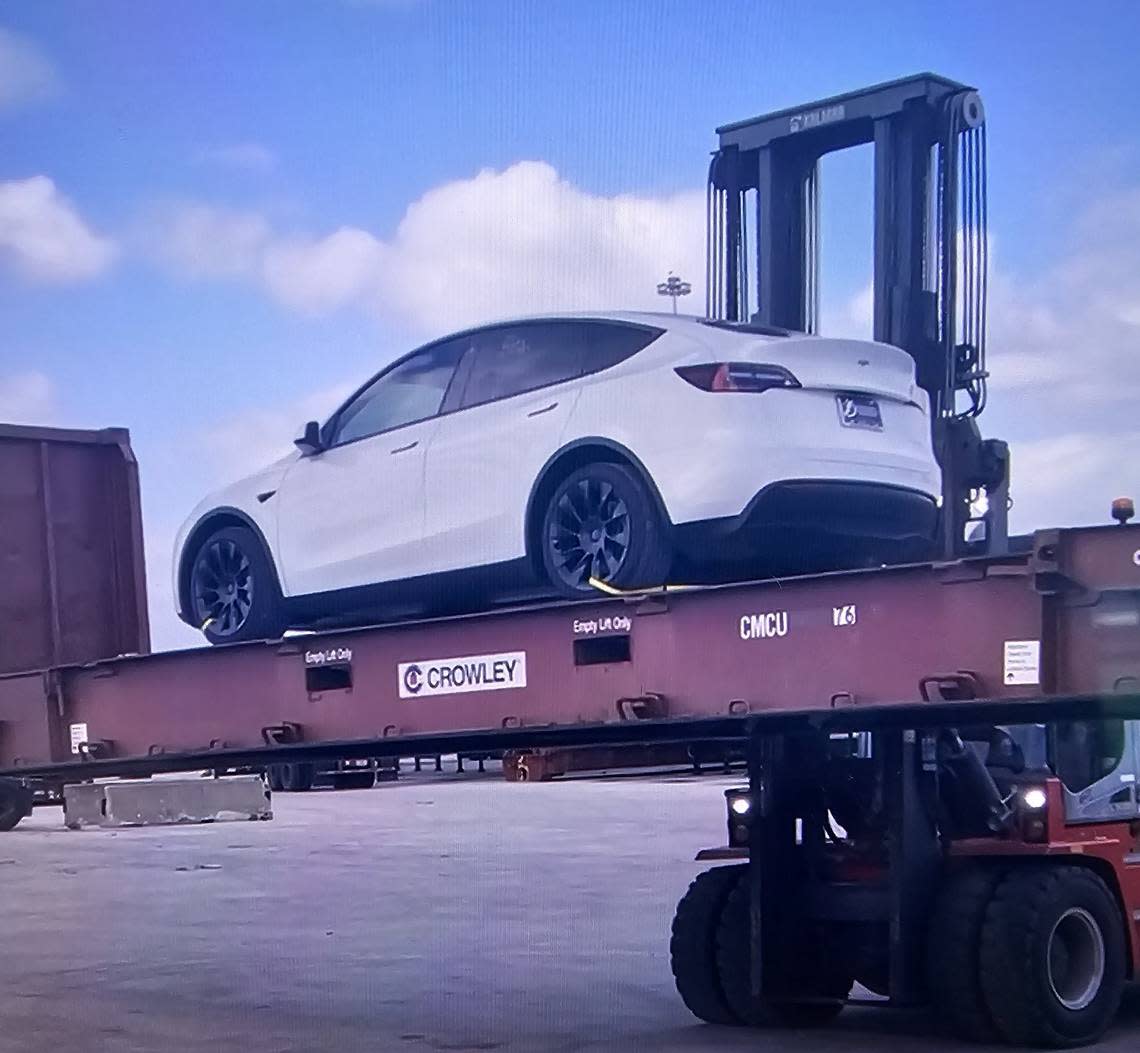In a first, a Tesla shipped from Florida will be driving through the streets of Havana

Elon Musk’s most iconic product has finally made it to Havana. A Tesla electric car, the first exported directly from the United States, will be driving through streets in the Cuban capital after an American company recently sold it to a couple with residences in the U.S. and Cuba.
The Tesla, a 2021 Model Y with a $38,850 price tag, is already in Cuba, according to John Felder, the head of Premier Automotive Export Ltd., a company based in Maryland with offices in Miami that sold the vehicle.
The car shipped from Port Everglades in Fort Lauderdale on Nov. 22 to the Mariel Port, west of Havana, and was being displayed Friday at a private event at a restaurant owned by high-jump world-record holder Javier Sotomayor.
The Tesla journey hasn’t been easy.
Previously, the U.S. embargo prevented car sales to Cuba, and the communist government didn’t allow Cubans to buy cars — which is why there are so many old American cars still puttering around. However, the government has sometimes imported American cars or cars with American-made parts through third countries. European brands like Mercedes-Benz have opened car dealerships on the island, mostly catering to foreigners and diplomats living there.
Cars in Cuba
In recent years, the Cuban government has opened some shops to sell cars to Cubans. However, only a few have bought them because of their sky-high prices in a country where the average monthly state salary is around 4000 Cuban pesos, or $15. Cuban authorities have also allowed owners of small and medium private enterprises, first authorized in 2021, to import cars.
In the U.S., the Biden administration has issued licenses to authorize a few companies to export cars to the island if the ultimate beneficiary is a private business owner.
Felder, a former Chrysler executive credited with introducing the first electric car to the Caribbean, got the first of such licenses to export electric cars in November last year, a story feature in the documentary “Driving Towards Change” that will be shown at the Friday event in Havana.
Previously, his company had received other licenses to sell electric scooters to Cubans and electric vehicles to foreign embassies in Havana.
Though the country lacks the infrastructure to support an electric car market, Felder said he includes home chargers in the price of the cars he sells and can provide service to the vehicles on the island.
Costly car deals in Cuba
Even so, the flashy Tesla will likely be a rarity in Cuba for now.
On top of its sticker price, the government imposes a 21% customs tax on electric cars bought by small and medium private enterprises and 42% if the buyer is an individual, according to John Kavulich, the president of the U.S.-Cuba Trade and Economic Council.
The couple that bought the Tesla runs a popular Cuban restaurant in Maryland but has also kept its permanent residence in Cuba, Felder said. That is possible if the person returns to Cuba at least once in the first two years of emigrating or has applied to restore the residence rights through a legal process known as repatriation. Because the couple live in the United States, they can pay the U.S. car seller directly, which most Cubans living on the island cannot currently do because the embargo does not allow direct banking relations with Cuba.
The price and banking restrictions mean that his potential clients are people with dual residency, the few owners of highly successful private businesses in Cuba and Cubans who live abroad and are buying cars for their relatives in Cuba, Felder said.
The Cuban government also requires local buyers and foreign car sellers to work through a state company as an intermediary, adding bureaucracy and causing delays, Felder said. So far, he has been able to sell three electric cars to private citizens in Cuba, but only the Tesla has been delivered.
“I’m having a hard time getting the documentation completed because it’s a little challenging,” he said. “The customers have to pay for the vehicle duty before I can import or export it. I’ve got a customer in Germany waiting to find out just how much he’s got to pay. And he’s been waiting now for two weeks. Which means I can’t deliver the car.”
Still, Felder is betting on the Cuban market and says he welcomes the competition from other companies, including one owned by Cuban-American businessman Hugo Cancio, who has also been authorized to sell cars.
“I opened the door,” Felder said. “It took me years to get the license, but once I got it, everybody now wants to jump in. That’s a good thing because competition is good for business.”
The U.S. wants American electric cars rolling in Cuba. For now, its embassy rents Chinese

